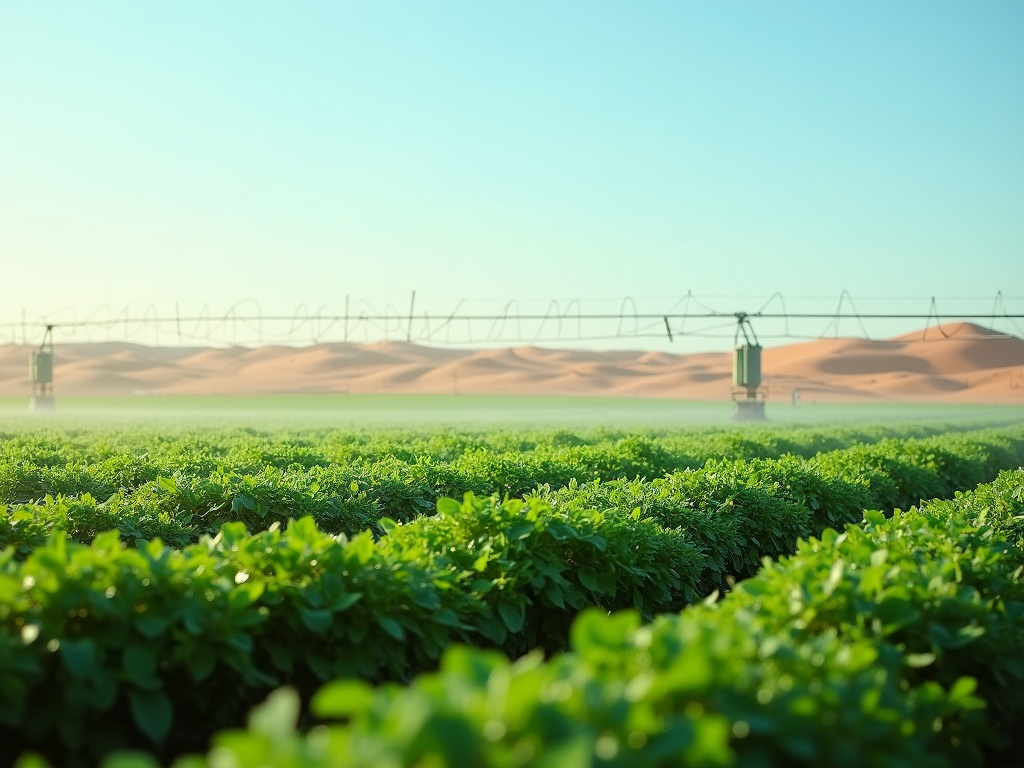As one of the world’s most arid regions, Dubai has embraced innovative water conservation technologies to combat its growing water scarcity. The investment trends in this sector reflect a robust commitment to sustainable resource management. Key players in the market include governmental initiatives, private enterprises, and international investors who are reshaping the future of water use in the emirate. In this article, we shall explore current investment trends, significant technologies being adopted, and the role of policy in shaping these innovations.
The Growing Demand for Water Conservation Technologies

The increasing demand for water conservation technologies in Dubai can be attributed to a combination of factors, including population growth, economic expansion, and the impacts of climate change. The government is actively investing in solutions that enhance the sustainability of water usage, leading to a surge in technology-driven initiatives. Some of the main drivers of this demand include:
- Population Growth: With a growing population, the need for effective water management systems has become crucial.
- Economic Diversification: As Dubai diversifies its economy, more water-efficient technologies are needed to support new industries.
- Environmental Concerns: Increasing awareness of environmental sustainability pushes businesses to seek water-saving solutions.
- Regulatory Framework: Government incentives and regulations encourage innovation in water conservation practices.
- Technological Advances: Developments in technology make it easier to implement and sustain water-saving measures.
Prominent Technologies Shaping Investment Trends

Dubai has been a pioneer in the adoption of various water conservation technologies. Some of the most prominent technologies currently attracting investments include:
- Desalination Technologies: Through innovative desalination techniques, Dubai transforms seawater into potable water, leading the way in sustainable water supply.
- Smart Irrigation Systems: These systems utilize advanced sensors and algorithms to optimize water usage in agriculture, contributing significantly to water conservation efforts.
- Wastewater Treatment and Reuse: Treated wastewater is increasingly being recycled for non-potable uses, reducing pressure on fresh water resources.
- Rainwater Harvesting: Investment in rainwater collection systems enables communities to capture and utilize rainwater, further enhancing local water availability.
- Water Monitoring Sensors: Technologies that monitor water usage in real-time help businesses and households optimize their water consumption patterns.
The Dubai government plays a vital role in steering investment into water conservation technologies. Initiatives such as the UAE Water Security Strategy 2036 aim to manage and conserve water resources effectively. The government offers financial incentives for private sector investments in green technologies and renewable energy projects. Key impacts of these initiatives include:
- Enhanced Investment Opportunities: Public-private partnerships are flourishing, leading to an increase in funding for innovative water solutions.
- Research and Development Support: Investment in R&D facilities dedicated to water technologies encourages innovation among local startups.
- Awareness Campaigns: Government programs that promote water conservation practices among residents create a culture of sustainability.
- Standardization of Technologies: Regulatory frameworks help create uniform standards that facilitate technology adoption across the region.
- Access to Funding Programs: Initiatives like the Dubai Future Foundation provide grants and access to international financing for promising projects.
Investment Challenges and Future Outlook
While Dubai is making significant strides in water conservation investments, challenges still exist. Financial constraints, technological adoption barriers, and the need for skilled personnel can hinder progress. However, the future outlook remains positive, driven by a combination of strong governmental support and increasing private sector involvement. Key aspects to consider for future investments include:
- Innovation in Financing Models: New funding models, such as green bonds, can attract more investment in sustainable projects.
- Integration of AI and IoT: Leveraging artificial intelligence and the Internet of Things will enhance efficiency in water management.
- Expanded International Collaboration: Partnerships with global tech firms can introduce advanced solutions tailored for local conditions.
- Community Engagement: Increasing public involvement in water conservation efforts will strengthen sustainability initiatives.
- Education and Training Programs: Fostering a skilled workforce in the water sector will be essential for implementing advanced technologies.
Conclusion
The investment trends in Dubai’s water conservation technologies highlight a concerted effort from the government, private sector, and local communities to address water scarcity sustainably. With various technological advancements and a supportive regulatory framework, Dubai is poised to become a global leader in water management. The focus on innovative solutions, alongside ongoing investments and community engagement, will ensure that the emirate can navigate its water challenges effectively. As this landscape continues to evolve, stakeholders in Dubai’s water sector must remain proactive and collaborative to sustain progress.
Frequently Asked Questions
What are the primary technologies used for water conservation in Dubai?
The primary technologies include desalination, smart irrigation systems, wastewater treatment and reuse, rainwater harvesting, and water monitoring sensors.
How is the Dubai government supporting water conservation efforts?
The government is implementing initiatives like the UAE Water Security Strategy 2036, offering financial incentives for investments, and promoting awareness campaigns.
What challenges do investors face in water conservation technologies in Dubai?
Challenges include financial constraints, technological adoption barriers, and the need for skilled personnel to implement and manage these technologies.
Why is public engagement important for water conservation?
Community involvement fosters a culture of sustainability, increases awareness of water issues, and encourages responsible usage practices among residents.
What is the future outlook for water conservation investment in Dubai?
The future looks promising with potential innovations in financing models, advances in technology, and enhanced international collaborations driving new investment opportunities.


